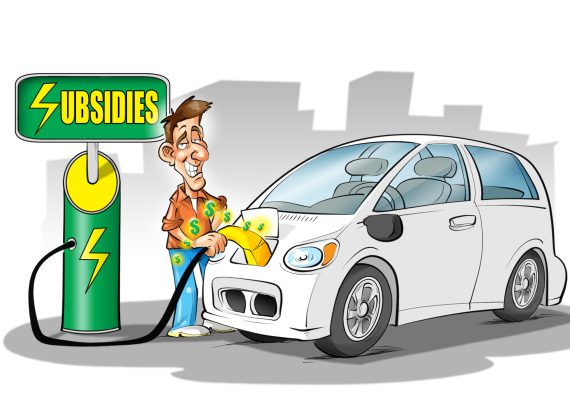Putting an end to electric vehicle subsidies

An article in La Presse today looks at problems related to the subsidy program for the purchase of a used electric vehicle—one of five components of Quebec’s Roulez vert program. Among all the good reasons to call such a program into question, the most relevant and the most obvious is clearly its inefficiency.
Since 2012, Quebec has spent $321 million in subsidies to “encourage” the purchase of electric vehicles and charging stations. This spending will continue, since the government has extended the program for two years at a cost of an additional $434 million. Total cost in 2021: $755 million (page E.16 of the budget).
Up until now, the $8,600 subsidy paid out by Quebec for the purchase of a vehicle and charging station cost taxpayers a little under $300 per tonne of greenhouse gas (GHG) emissions avoided. With the new $5,000 federal subsidy, the cost per tonne of GHGs not emitted is now over $450, or 23 times the price on the carbon market or that of the federal tax! Even when this tax will have risen to $50 per tonne in 2022, the subsidy will still be nine times more expensive.
In addition to being very costly, this measure has very little impact on GHG emissions. Indeed, even if Quebec achieved its objective of having one million fully electric vehicles on its roads by 2030—or twenty times more than the current number, which also includes hybrids—it would only reduce our GHG emissions by 3.6% from their current level.
Of course, the point is not to say that we shouldn’t do anything to reduce our GHG emissions, but rather to point out that there are more efficient and less expensive ways of doing so. Quebec and Ottawa should end their subsidy programs, and content themselves with taxing the consumption of carbon while making sure to reduce the tax burden by an equivalent amount.

